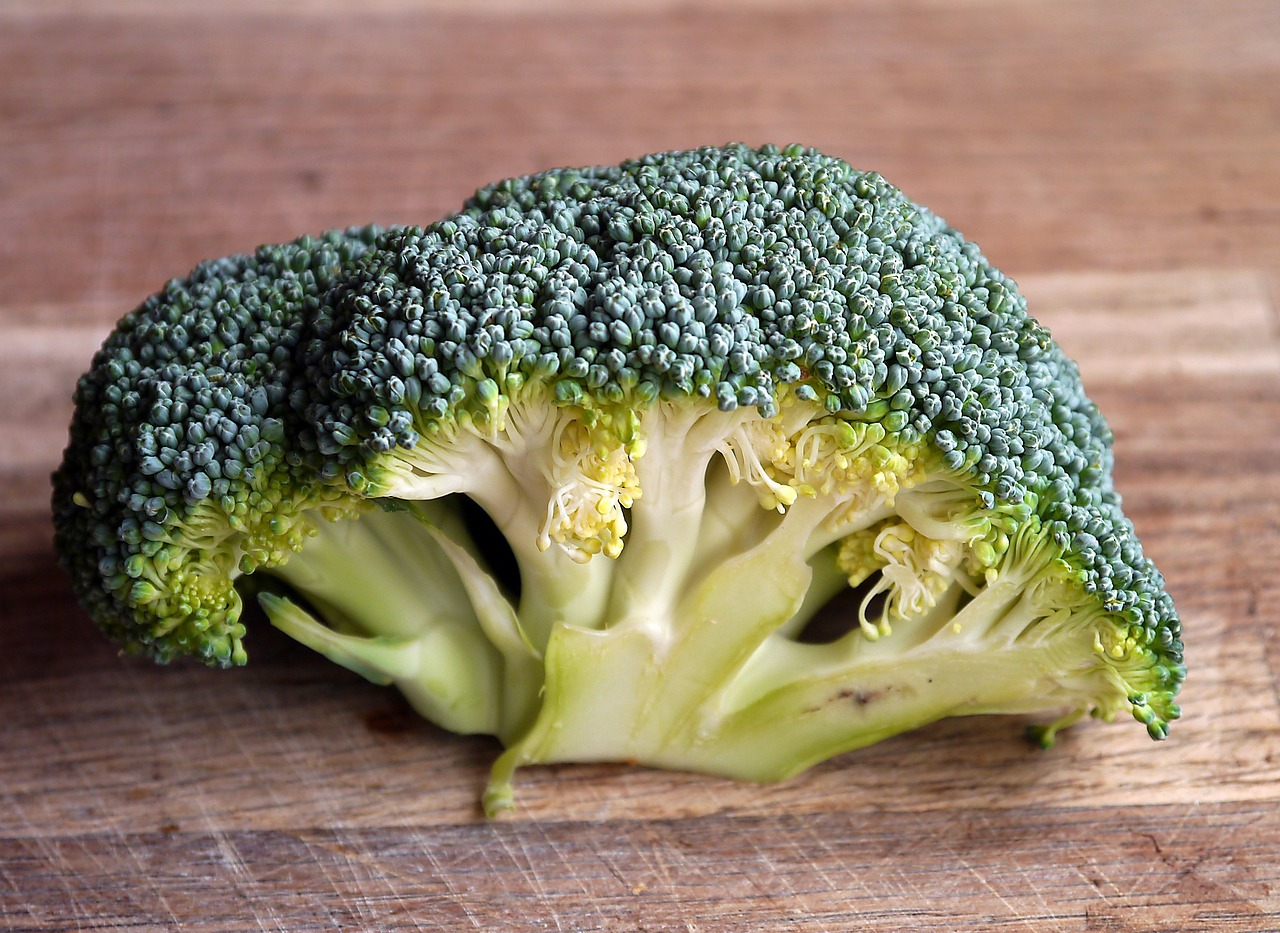In recent years, the importance of maintaining a healthy lifestyle has become increasingly prominent. With the growing interest in eating conscientiously and pursuing optimal health, various health-promoting compounds are gaining popularity. Among them, sulforaphane stands out as a health booster. Sourced from cruciferous vegetables like broccoli and cauliflower, sulforaphane has a variety of benefits that can significantly impact our overall health.
Sulforaphane is a naturally occurring compound found in certain vegetables, especially cruciferous vegetables like broccoli, Brussels sprouts, cabbage and kale. It belongs to the family of isothiocyanate phytochemicals and is found in cruciferous vegetables like broccoli, cabbage, kale, and Brussels sprouts. When we eat these vegetables, an enzyme called myrosinase helps convert sulforaphane into sulforaphane, which our bodies can efficiently absorb and use.

Research shows that sulforaphane may boost the body's natural defense mechanism against oxidative stress by activating a protein called Nrf2. This protein acts as a master regulator of antioxidant genes, promoting the production of enzymes that neutralize free radicals and detoxify harmful substances. In doing so, sulforaphane helps protect our cells and DNA from oxidative damage, ultimately reducing the risk of chronic disease.
Fresh cruciferous vegetables:
The gold standard for getting sulforaphane is through eating fresh cruciferous vegetables. For best results, it's crucial to maximize sulforaphane release by preparing these vegetables properly. Mincing or chopping vegetables and letting them sit for a few minutes before cooking or eating them raw can activate the enzyme myrosinase, which increases sulforaphane production.
Broccoli Sprouts:
While all cruciferous vegetables contain sulforaphane, broccoli sprouts are an excellent source due to their incredible concentration of the compound. In fact, research shows that broccoli sprouts may contain 50 times more sulforaphane than mature broccoli heads. These tender and tasty sprouts provide easy-to-digest sulforaphane, making them a great addition to salads, sandwiches or smoothies.
Supplements:
Sulforaphane supplements may be a convenient substitute for those who may have difficulty getting enough cruciferous vegetables into their diet. These supplements contain concentrated forms of sulforaphane, ensuring consistent intake of this beneficial compound. However, it's important to choose a high-quality supplement from a reputable manufacturer, as different brands may vary in efficacy.
Cooking methods:
While raw or lightly cooked cruciferous vegetables generally retain higher levels of sulforaphane, various cooking methods can still retain significant amounts of this compound. Steaming, sautéing, and frying cruciferous vegetables are the go-to techniques for preventing overheating and loss of nutrients. On the other hand, boiling may result in significantly lower sulforaphane levels.
1. Powerful Antioxidant and Anti-Inflammatory Properties
One of the remarkable properties of sulforaphane is its potent antioxidant and anti-inflammatory properties. As an antioxidant, it helps protect our cells from harmful free radicals, which are known to contribute to chronic diseases such as heart disease, cancer and neurodegenerative diseases. In addition, sulforaphane also has anti-inflammatory effects, reducing the risk of inflammation-related diseases.
2. The role of cancer prevention
Extensive scientific research suggests that sulforaphane may play an important role in reducing cancer risk. This potent compound has demonstrated its ability to inhibit the growth of cancer cells and prevent tumor formation. Sulforaphane induces detoxifying enzymes in our body, enhancing the elimination of carcinogens and possibly reducing the growth of cancer cells.
3. Enhances Cardiovascular Health
Maintaining a healthy heart is essential to living a long and fulfilling life. Sulforaphane is known to promote heart health by reducing oxidative stress, lowering cholesterol levels and improving blood vessel function. Additionally, it supports blood pressure regulation and reduces the risk of plaque buildup in arteries, ultimately reducing the risk of cardiovascular disease.
4. Neuroprotective Potential
As our understanding of brain health continues to evolve, researchers are exploring ways to enhance neuroprotection and combat neurodegenerative disease. Sulforaphane has attracted attention in the field due to its potential neuroprotective effects. Research suggests that sulforaphane may help reduce inflammation in brain tissue, promote neuron growth, and enhance overall cognitive function. Although further research is needed, these findings offer promising possibilities for the field of brain health.
5. Potential for Detoxification and Liver Health
Our body's detoxification process is vital to maintaining overall health. Sulforaphane has shown promise in supporting liver detoxification enzymes, which help eliminate toxins and may prevent liver damage. By activating these enzymes, sulforaphane may contribute to the overall health and function of the liver.
Before delving into side effects, it's important to note that sulforaphane is generally considered safe when consumed in moderation. Most research on sulforaphane focuses on its positive effects rather than its adverse effects. However, some potential side effects have been reported, although they are relatively rare.
One of the most common side effects of consuming sulforaphane is digestive discomfort. Some people may experience stomach pain, bloating, or gas after consuming foods or supplements that contain this compound. These symptoms are usually mild and go away on their own without medical intervention. However, if discomfort persists or becomes severe, consultation with a healthcare professional is advised.
Another potential side effect associated with sulforaphane use is allergic reactions. Although rare, some people may be allergic to sulforaphane and experience symptoms such as itching, hives, or swelling. If you experience any signs of an allergic reaction after consuming sulforaphane-rich foods or supplements, you should seek immediate medical attention.
Also, caution must be exercised when taking high doses of sulforaphane. Some research suggests that extremely high doses may interfere with thyroid function, especially in individuals with thyroid disease. Therefore, people with thyroid disease should exercise caution and seek the advice of a healthcare provider before incorporating sulforaphane into their diet.
Disclaimer: This article is for informational purposes only and should not be considered medical advice. Always consult a healthcare professional before using any supplements or changing your healthcare regimen.
Post time: Sep-04-2023







